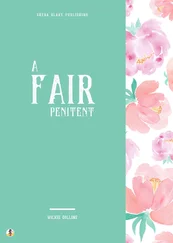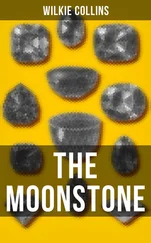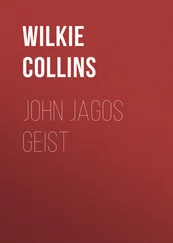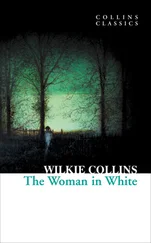Wilkie Collins - The Queen of Hearts
Здесь есть возможность читать онлайн «Wilkie Collins - The Queen of Hearts» весь текст электронной книги совершенно бесплатно (целиком полную версию без сокращений). В некоторых случаях можно слушать аудио, скачать через торрент в формате fb2 и присутствует краткое содержание. Год выпуска: 1999, Жанр: Классическая проза, на английском языке. Описание произведения, (предисловие) а так же отзывы посетителей доступны на портале библиотеки ЛибКат.
- Название:The Queen of Hearts
- Автор:
- Жанр:
- Год:1999
- ISBN:нет данных
- Рейтинг книги:5 / 5. Голосов: 1
-
Избранное:Добавить в избранное
- Отзывы:
-
Ваша оценка:
- 100
- 1
- 2
- 3
- 4
- 5
The Queen of Hearts: краткое содержание, описание и аннотация
Предлагаем к чтению аннотацию, описание, краткое содержание или предисловие (зависит от того, что написал сам автор книги «The Queen of Hearts»). Если вы не нашли необходимую информацию о книге — напишите в комментариях, мы постараемся отыскать её.
The Queen of Hearts — читать онлайн бесплатно полную книгу (весь текст) целиком
Ниже представлен текст книги, разбитый по страницам. Система сохранения места последней прочитанной страницы, позволяет с удобством читать онлайн бесплатно книгу «The Queen of Hearts», без необходимости каждый раз заново искать на чём Вы остановились. Поставьте закладку, и сможете в любой момент перейти на страницу, на которой закончили чтение.
Интервал:
Закладка:
“Which door?”
“The front,” was the answer. “We’ve cracked it already; we’ll have it down now in no time.”
Senses less sharpened by danger than mine would have understood but too easily, from these words, that they were about to use the beam as a battering-ram against the door. When that conviction overcame me, I lost courage at last. I felt that the door must come down. No such barricade as I had constructed could support it for more than a few minutes against such shocks as it was now to receive.
“I can do no more to keep the house against them,” I said to myself, with my knees knocking together, and the tears at last beginning to wet my cheeks. “I must trust to the night and the thick darkness, and save my life by running for it while there is yet time.”
I huddled on my cloak and hood, and had my hand on the bar of the back door, when a piteous mew from the bedroom reminded me of the existence of poor Pussy. I ran in, and huddled the creature up in my apron. Before I was out in the passage again, the first shock from the beam fell on the door.
The upper hinge gave way. The chairs and coal-scuttle, forming the top of my barricade, were hurled, rattling, on to the floor, but the lower hinge of the door, and the chest of drawers and the tool-chest still kept their places.
“One more!” I heard the villains cry—“one more run with the beam, and down it comes!”
Just as they must have been starting for that “one more run,” I opened the back door and fled into the night, with the bookful of banknotes in my bosom, the silver spoons in my pocket, and the cat in my arms. I threaded my way easily enough through the familiar obstacles in the backyard, and was out in the pitch darkness of the moor before I heard the second shock, and the crash which told me that the whole door had given way.
In a few minutes they must have discovered the fact of my flight with the pocketbook, for I heard shouts in the distance as if they were running out to pursue me. I kept on at the top of my speed, and the noise soon died away. It was so dark that twenty thieves instead of two would have found it useless to follow me.
How long it was before I reached the farmhouse—the nearest place to which I could fly for refuge—I cannot tell you. I remember that I had just sense enough to keep the wind at my back (having observed in the beginning of the evening that it blew toward Moor Farm), and to go on resolutely through the darkness. In all other respects I was by this time half crazed by what I had gone through. If it had so happened that the wind had changed after I had observed its direction early in the evening, I should have gone astray, and have probably perished of fatigue and exposure on the moor. Providentially, it still blew steadily as it had blown for hours past, and I reached the farmhouse with my clothes wet through, and my brain in a high fever. When I made my alarm at the door, they had all gone to bed but the farmer’s eldest son, who was sitting up late over his pipe and newspaper. I just mustered strength enough to gasp out a few words, telling him what was the matter, and then fell down at his feet, for the first time in my life in a dead swoon.
That swoon was followed by a severe illness. When I got strong enough to look about me again, I found myself in one of the farmhouse beds—my father, Mrs. Knifton, and the doctor were all in the room—my cat was asleep at my feet, and the pocketbook that I had saved lay on the table by my side.
There was plenty of news for me to hear as soon as I was fit to listen to it. Shifty Dick and the other rascal had been caught, and were in prison, waiting their trial at the next assizes. Mr. and Mrs. Knifton had been so shocked at the danger I had run—for which they blamed their own want of thoughtfulness in leaving the pocketbook in my care—that they had insisted on my father’s removing from our lonely home to a cottage on their land, which we were to inhabit rent free. The bank-notes that I had saved were given to me to buy furniture with, in place of the things that the thieves had broken. These pleasant tidings assisted so greatly in promoting my recovery, that I was soon able to relate to my friends at the farmhouse the particulars that I have written here. They were all surprised and interested, but no one, as I thought, listened to me with such breathless attention as the farmer’s eldest son. Mrs. Knifton noticed this too, and began to make jokes about it, in her light-hearted way, as soon as we were alone. I thought little of her jesting at the time; but when I got well, and we went to live at our new home, “the young farmer,” as he was called in our parts, constantly came to see us, and constantly managed to meet me out of doors. I had my share of vanity, like other young women, and I began to think of Mrs. Knifton’s jokes with some attention. To be brief, the young farmer managed one Sunday—I never could tell how—to lose his way with me in returning from church, and before we found out the right road home again he had asked me to be his wife.
His relations did all they could to keep us asunder and break off the match, thinking a poor stonemason’s daughter no fit wife for a prosperous yeoman. But the farmer was too obstinate for them. He had one form of answer to all their objections. “A man, if he is worth the name, marries according to his own notions, and to please himself,” he used to say. “My notion is, that when I take a wife I am placing my character and my happiness—the most precious things I have to trust—in one woman’s care. The woman I mean to marry had a small charge confided to her care, and showed herself worthy of it at the risk of her life. That is proof enough for me that she is worthy of the greatest charge I can put into her hands. Rank and riches are fine things, but the certainty of getting a good wife is something better still. I’m of age, I know my own mind, and I mean to marry the stone-mason’s daughter.”
And he did marry me. Whether I proved myself worthy or not of his good opinion is a question which I must leave you to ask my husband. All that I had to relate about myself and my doings is now told. Whatever interest my perilous adventure may excite, ends, I am well aware, with my escape to the farmhouse. I have only ventured on writing these few additional sentences because my marriage is the moral of my story. It has brought me the choicest blessings of happiness and prosperity, and I owe them all to my night-adventure in The Black Cottage .
THE SECOND DAY.
A CLEAR, cloudless, bracing autumn morning. I rose gayly, with the pleasant conviction on my mind that our experiment had thus far been successful beyond our hopes.
Short and slight as the first story had been, the result of it on Jessie’s mind had proved conclusive. Before I could put the question to her, she declared of her own accord, and with her customary exaggeration, that she had definitely abandoned all idea of writing to her aunt until our collection of narratives was exhausted.
“I am in a fever of curiosity about what is to come,” she said, when we all parted for the night; “and, even if I wanted to leave you, I could not possibly go away now, without hearing the stories to the end.”
So far, so good. All my anxieties from this time were for George’s return. Again to-day I searched the newspapers, and again there were no tidings of the ship.
Miss Jessie occupied the second day by a drive to our county town to make some little purchases. Owen, and Morgan, and I were all hard at work, during her absence, on the stories that still remained to be completed. Owen desponded about ever getting done; Morgan grumbled at what he called the absurd difficulty of writing nonsense. I worked on smoothly and contentedly, stimulated by the success of the first night.
Читать дальшеИнтервал:
Закладка:
Похожие книги на «The Queen of Hearts»
Представляем Вашему вниманию похожие книги на «The Queen of Hearts» списком для выбора. Мы отобрали схожую по названию и смыслу литературу в надежде предоставить читателям больше вариантов отыскать новые, интересные, ещё непрочитанные произведения.
Обсуждение, отзывы о книге «The Queen of Hearts» и просто собственные мнения читателей. Оставьте ваши комментарии, напишите, что Вы думаете о произведении, его смысле или главных героях. Укажите что конкретно понравилось, а что нет, и почему Вы так считаете.











